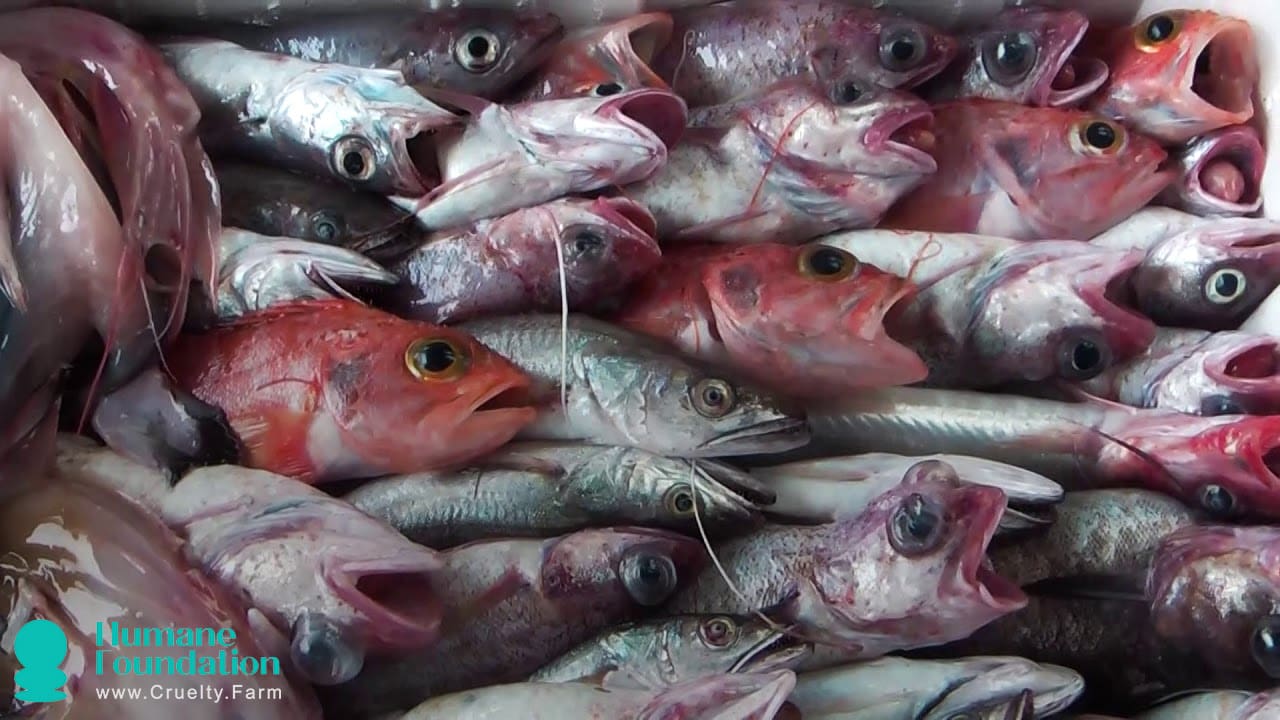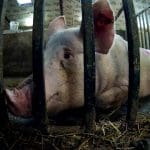Factory farming has long been a contentious topic, with its impact on animal welfare and the environment often at the forefront of discussions. However, amidst the protests and debates surrounding the treatment of land animals, there is one group that often goes unnoticed and unheard – fish. These aquatic creatures make up a large portion of the food industry, yet their suffering and rights are rarely acknowledged. In the shadow of factory farming, fish are subjected to inhumane and unsustainable practices that are often overlooked. It is time to shed light on the silent suffering of these sentient beings and advocate for their rights. In this article, we will delve into the often-ignored world of fish in factory farming, exploring the ethical and environmental implications of their mistreatment and the need for greater advocacy and protection. It is time to give a voice to the voiceless and address the pressing issue of the rights of fish in the face of industrialized fishing practices.
Fish are sentient beings too
The evidence supporting the sentience of fish is growing, challenging our preconceived notions about their cognitive abilities and emotional experiences. Scientists are discovering that fish have complex nervous systems and exhibit behaviors indicative of pain perception and social interactions. For instance, studies have shown that fish can experience pain and stress, display learning and memory capabilities, and even form intricate social hierarchies. These findings underscore the importance of recognizing fish as sentient beings who deserve our consideration and ethical treatment. By acknowledging their sentience, we can strive for better welfare standards in the fishing industry, promote sustainable fishing practices, and advocate for the protection of their natural habitats. It is our responsibility to extend empathy and compassion not only to the animals we readily identify with, but also to the often overlooked and underestimated inhabitants of our oceans.
Factory farming’s impact on fish
Factory farming, a dominant practice in the livestock industry, not only affects land animals but also has a significant impact on fish populations. The pollution generated by factory farms, including the runoff of animal waste and excessive use of antibiotics and pesticides, finds its way into nearby bodies of water. This contamination can lead to harmful algal blooms, oxygen depletion, and the destruction of aquatic ecosystems. Additionally, the large-scale and intensive fishing practices employed by commercial fisheries contribute to overfishing, depletion of fish stocks, and disruption of the marine food chain. As a result, fish populations suffer from habitat degradation, reduced biodiversity, and increased vulnerability to disease. The detrimental effects of factory farming on fish highlight the urgent need to address the environmental consequences of this industry and promote sustainable and responsible practices to safeguard the well-being of our aquatic companions.
Cruelty and suffering unseen by consumers
In the shadow of factory farming, a veil of cruelty and suffering shrouds the lives of countless fish, hidden from the eyes of consumers. Behind the glossy packaging and neatly arranged seafood counters, lies a hidden reality of unimaginable pain and deprivation. Fish, sentient creatures with the capacity to feel pain and experience emotions, are subjected to unimaginable cruelty in the name of mass production. From cramped and overcrowded conditions in aquaculture farms to the use of harmful chemicals and antibiotics, their lives are marred by relentless suffering. Yet, the plight of these voiceless beings remains largely invisible to consumers, who unknowingly contribute to their agony through their purchasing choices. It is time to unveil the truth behind the scenes of the fishing industry, to advocate for the rights of fish and to demand ethical and sustainable practices that respect the inherent value and welfare of these often-overlooked creatures.

The environmental impact of factory farming
Factory farming not only inflicts immense suffering upon fish but also leaves a profound and lasting impact on the environment. The excessive use of antibiotics and chemicals in fish farms not only pollutes the surrounding water bodies but also contributes to the development of antibiotic-resistant bacteria, posing a threat to human health. Additionally, the massive amounts of waste produced by factory farms, including fish excrement and uneaten feed, contribute to water pollution and the destruction of aquatic ecosystems. Furthermore, the high-energy inputs required for the operation of these farms, such as electricity and fuel for transportation, contribute to greenhouse gas emissions and climate change. The environmental consequences of factory farming are vast and far-reaching, and it is imperative that we address these issues to prevent further degradation of our planet and the delicate ecosystems it supports.
The ethical responsibility of consumers
Consumers play a pivotal role in addressing the ethical concerns surrounding the treatment of fish in factory farming. It is the responsibility of consumers to be conscious of the choices they make when purchasing seafood products. By making informed choices and voicing their concerns, consumers have the power to drive change and create a demand for more ethical and sustainable seafood options. The ethical responsibility of consumers lies not only in individual purchasing decisions but also in collective action to promote a more compassionate and responsible approach to fish farming.
Advocating for humane treatment
To effectively advocate for humane treatment, it is crucial to raise awareness about the inherent suffering endured by fish in factory farming operations. Highlighting the conditions in which these sentient beings are raised, confined, and slaughtered can serve as a catalyst for change. Utilizing various platforms, such as social media, educational campaigns, and public forums, we can shed light on the often overlooked plight of fish and encourage discussions on the moral implications of their treatment. By presenting compelling evidence and personal stories, we can create empathy and inspire individuals to question the status quo and demand improved welfare standards for fish. Moreover, collaborating with animal welfare organizations, policymakers, and industry stakeholders can amplify our efforts and facilitate the implementation of stricter regulations and guidelines to ensure that fish are afforded the respect and care they deserve. Through these collective actions, we can pave the way for a future where the rights of fish are recognized and protected, even in the face of industrialized farming practices.
Seeking alternatives to mass production
In order to address the systemic issues of mass production and its impact on the environment and animal welfare, it is imperative to seek alternatives that prioritize sustainability and ethical practices. By advocating for these alternatives to mass production, we can foster a more compassionate and sustainable future for both animals and the planet.
















































